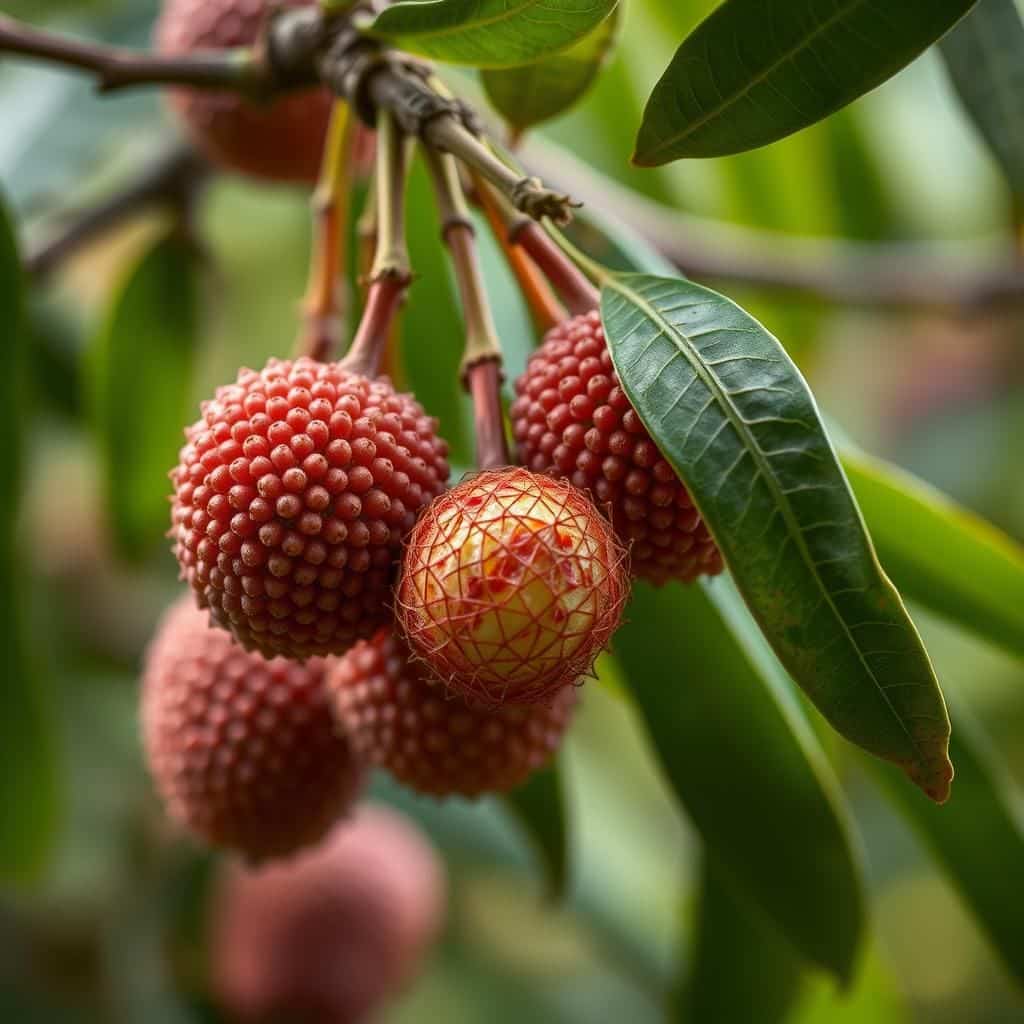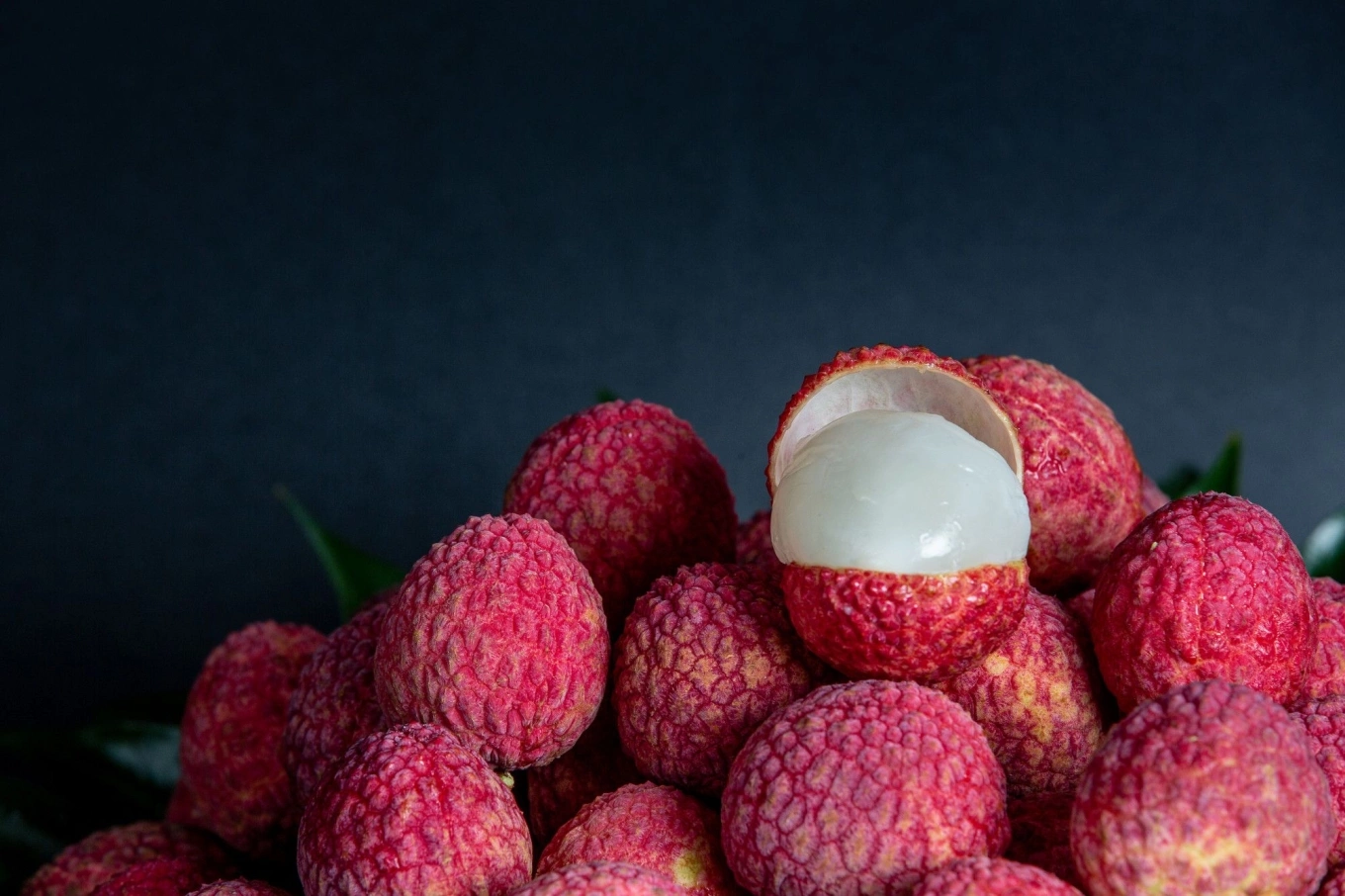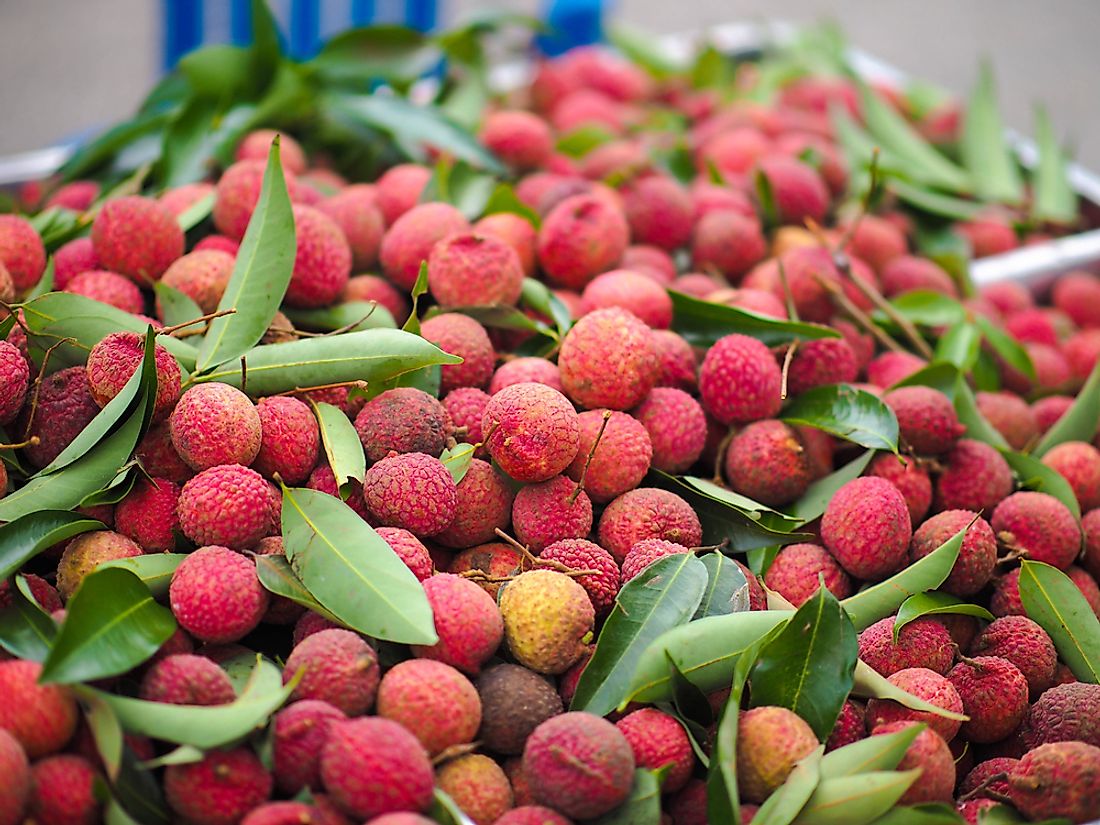Discovering the Origins: Where Do Lychees Originate From?

Lychees are a tropical fruit known for their unique flavor and striking appearance, but their origins tell a fascinating story of cultural significance and agricultural heritage. Believed to have been cultivated for over 2,000 years, these luscious fruits have a rich history rooted in ancient China, where they were once reserved for emperors and royalty. As we explore the journey of lychees from their native lands to modern-day markets worldwide, we will uncover the environmental conditions that favor their growth, the traditions that celebrate their harvest, and the impact of globalization on their cultivation and popularity among fruit lovers today.
Where Do Lychees Originate From?
Lychees, known scientifically as Litchi chinensis, originate from Southern China, where they have been cultivated for over 2,000 years. This tropical fruit thrives in humid, warm climates, making it well-suited for regions in Asia, particularly in provinces such as Guangdong and Fujian. Aside from China, lychees have also been introduced to other countries, including India, Thailand, Vietnam, and even some parts of the United States and Australia, where they grow in similar warm conditions. The fruit is celebrated for its sweet, floral flavor and is often enjoyed fresh, dried, or as an ingredient in various dishes.
The Historical Significance of Lychees
Lychees have a rich history in China, where they were regarded as a delicacy for emperors and nobility. Historical texts reveal that the fruit was so cherished that it was transported from southern provinces to northern courts, often under careful watch to prevent spoilage. Thus, lychees symbolized luxury and exclusivity, representing the culinary traditions and agrarian lifestyle of ancient Chinese civilizations.
Lychee Cultivation in Asia
In addition to China, lychees have become an important agricultural product in countries like India and Thailand, which are among the top producers today. Lychee trees flourish in regions with ideal growing conditions, characterized by well-drained, loamy soil and abundant sunlight. Farmers employ various cultivation techniques to ensure maximum yield, taking into consideration factors like irrigation and pest control. This agricultural expansion has helped sustain local economies and maintain cultural practices centered around the fruit.
Climate Requirements for Lychee Trees
Lychee trees prefer a tropical or subtropical climate, requiring warm temperatures and high humidity during the growing season. They thrive best in areas with average annual temperatures between 20°C to 30°C (68°F to 86°F) and need distinct dry seasons to support flowering and fruiting. Cold temperatures can severely damage the trees, while excessive rainfall can lead to fungal infections. Understanding these climatic requirements is crucial for successful lychee cultivation in various regions.
Popular Lychee Varieties
There are several popular varieties of lychees, each with unique characteristics and flavor profiles. The 'Brewster' variety is known for its large, juicy fruit with a sweet and aromatic taste, while the 'Hak ip' variety is smaller and boasts a more intense floral flavor. Additionally, the 'No Mai Chee' variety is noted for its crisp texture and reduced seed size, making it highly desirable among fruit enthusiasts. Each variety contributes to the diversity of this beloved fruit and offers different options for culinary uses.
Global Impact of Lychees
The introduction of lychees to countries outside of Asia has resulted in a burgeoning global market for the fruit. Countries such as the United States and Australia have started to cultivate lychees, catering to growing demand both for fresh consumption and processed products. The rising popularity of lychees has not only led to increased trade opportunities but has also enhanced culinary diversity, introducing this exotic fruit's unique flavors to international cuisines.
| Country | Lychee Production (Metric Tons) | Key Varieties |
|---|---|---|
| China | 1,500,000 | Brewster, Hak ip |
| India | 500,000 | Calcuttia, Deshi |
| Thailand | 300,000 | No Mai Chee, Hong Huay |
| United States | 10,000 | Sweetheart |
| Australia | 15,000 | Kwai Mi Pink |
Why do I feel dizzy after eating lychee?

Feeling dizzy after eating lychee can be attributed to several factors. Lychee, a tropical fruit known for its sweetness and flavor, can have unique effects on the body, especially if consumed in excess or without proper dietary precautions.
Possible Allergic Reactions
Some individuals may experience dizziness due to an allergic reaction to lychee. Allergens found in the fruit can cause various symptoms, including dizziness. Common signs of an allergic reaction may include:
See also:
- Rash or hives on the skin.
- Swelling of the face, lips, or throat.
- Gastrointestinal issues like nausea or vomiting.
Blood Sugar Levels
Lychee can lead to a rapid increase in blood sugar levels due to its high sugar content. This sudden spike can cause feelings of dizziness, particularly in individuals prone to blood sugar fluctuations. Some factors include:
- Insulin resistance that may exacerbate the effects.
- Overeating lychee, leading to excessive sugar intake.
- Rapid decline in blood sugar after the initial spike, leading to dizziness.
Dehydration
Eating lychee might contribute to dehydration, especially if intake occurs in hot climates. Dehydration can cause dizziness due to reduced blood volume. Related factors include:
- High sugar content requiring more water for metabolism.
- Low fluid intake accompanying the fruit consumption.
- Hot weather exacerbating the effects of dehydration.
Potential Toxicity from Unripe Lychee
Consuming unripe lychee has been linked to severe health issues, including dizziness. The fruit contains toxins that can affect the body if not adequately prepared. Important considerations include:
- Unripe lychee contains high levels of hypoglycin A, which can be harmful.
- Consumption limits to avoid toxicity effects.
- Symptoms such as dizziness can arise from toxin exposure.
Underlying Health Conditions
Underlying health conditions can also contribute to dizziness after eating lychee. This could be linked to metabolic disorders or other medical issues. Considerations include:
- Diabetes, which may exacerbate blood sugar issues.
- Allergies to other food items that may complicate reactions.
- Cardiovascular issues affecting blood flow and hydration.
What country has the best lychee?

The country often regarded as producing the best lychee is China. Specifically, the southern regions of China, such as Guangdong, Hainan, and Fujian, are renowned for their high-quality lychee fruits. The climate in these areas is ideally suited for growing lychee, characterized by warm temperatures and a tropical environment that encourages optimal growth and sweetness in the fruit.
Lychee Varieties in China
China is home to multiple lychee varieties, each with distinct flavors and characteristics. Some of the most notable include:
- Huaizhi: Known for its sweetness and thick flesh.
- Feizixiao: Renowned for its large size and aromatic flavor.
- Guanxi: Noted for its crisp texture and juicy taste.
Climate and Harvesting Conditions
The ideal climatic conditions in southern China significantly influence the quality of lychees. The factors contributing to this include:
- Tropical climate: Necessary for growing lychee trees.
- Monsoon rains: Ensure adequate water supply during the growing season.
- Cool winter temperatures: Help the trees enter dormancy, promoting better fruiting.
Export and Global Demand
China is the largest producer of lychee and a major player in the global market. The export dynamics include:
- Global demand: Increasing interest worldwide for fresh lychee.
- Export practices: Involving stringent quality control to maintain standards.
- International markets: Supply to countries like the USA, Europe, and Japan.
Lychee Festivals in China
Several regions in China celebrate the lychee harvest, with festivals highlighting this beloved fruit. Notable aspects are:
See also:
- Celebratory events: Activities include lychee picking and tasting.
- Cultural significance: Lychee is celebrated as a symbol of love and romance.
- Tourism opportunities: Attract visitors wanting to experience the lychee culture firsthand.
Health Benefits of Lychee
In addition to being delicious, lychees are also packed with various health benefits, such as:
- Rich in vitamins: Provides Vitamin C and antioxidants.
- Hydration properties: Due to its high water content.
- Low-calorie fruit: A great option for healthy snacking.
Are lychees good or bad for you?

Lychees are tropical fruits that are known for their unique flavor and various health benefits. However, like many foods, they come with both advantages and potential drawbacks depending on how they are consumed and individual health conditions. Below is a detailed exploration of whether lychees are good or bad for you.
Health Benefits of Lychees
Lychees are not only delicious but also packed with numerous health benefits. They contain essential vitamins and minerals that can support overall health. Some of the key benefits include:
- Rich in Vitamin C: Lychees are an excellent source of vitamin C, which is crucial for immune function, skin health, and antioxidant protection.
- Good Source of Antioxidants: They contain antioxidants such as flavonoids that help combat oxidative stress in the body.
- Hydration: Lychees are high in water content, making them a hydrating snack, especially in hot climates.
Potential Risks of Eating Lychees
Despite their benefits, consuming lychees can also pose certain risks, particularly when not consumed appropriately. Here are some potential risks:
- Hypoglycemia Risk: Eating lychees on an empty stomach can lead to a drop in blood sugar levels, which may be dangerous for some individuals.
- Allergic Reactions: Some people may experience allergic reactions to lychees, leading to symptoms like itching, hives, or digestive issues.
- Cytotoxic Compounds: Unripe or raw lychees contain toxic compounds that can cause rapid drops in blood sugar and may lead to serious health issues.
Nutrition Facts of Lychees
Understanding the nutritional profile of lychees is important for evaluating their health impact. Here are some key nutrition facts:
- Calories: One cup of fresh lychee has about 125 calories, making it a relatively low-calorie fruit.
- Sugars: They are high in natural sugar (about 29g per cup), which can affect blood sugar levels.
- Fiber Content: Lychees provide a small amount of dietary fiber, which is beneficial for digestive health.
How to Enjoy Lychees Safely
To maximize the health benefits of lychees while minimizing risks, it's essential to consume them safely. Here are some tips:
- Choose Ripe Fruits: Always select ripe lychees, as unripe ones contain harmful compounds.
- Moderate Consumption: Enjoy lychees in moderation to avoid excessive sugar intake.
- Combine with Other Foods: Pairing lychees with proteins or healthy fats can help stabilize blood sugar levels when consuming them.
Lychees in the Diet
Incorporating lychees into your diet can be beneficial if done correctly. Here are some ways to include them:
- Fresh Snack: Enjoy fresh lychees as a nutritious snack or dessert.
- Smoothies: Blend lychees into smoothies for a tropical twist.
- Salads: Add them to fruit salads or green salads for added sweetness and texture.
Questions from Our Readers
Where do lychees originate from?
Lychees originate from the Guangdong and Fujian provinces of southern China. They have been cultivated for over 2,000 years and are also grown in other tropical and subtropical regions of the world today.
What climate is suitable for growing lychees?
Lychees thrive in a subtropical climate, requiring warm temperatures and well-drained soil. They also need a distinct dry season for flowering and fruiting, which is crucial for their development.
See also:
Are lychees cultivated outside of China?
Yes, lychees are cultivated in several countries outside of China, including India, Thailand, and the United States, particularly in Florida and California. These regions provide the ideal climate for lychee growth.
What are the key characteristics of lychees?
Lychees are known for their sweet, fragrant flavor and are characterized by their rough, red skin and translucent white flesh. They are also a good source of vitamins and minerals, making them a popular fruit worldwide.

If you want to read more articles like Discovering the Origins: Where Do Lychees Originate From?, we recommend you check out our Seeds category.
Leave a Reply
Related Articles